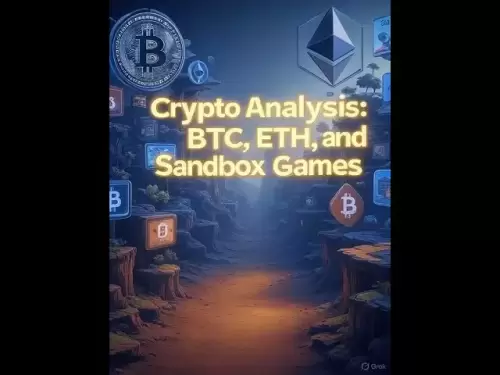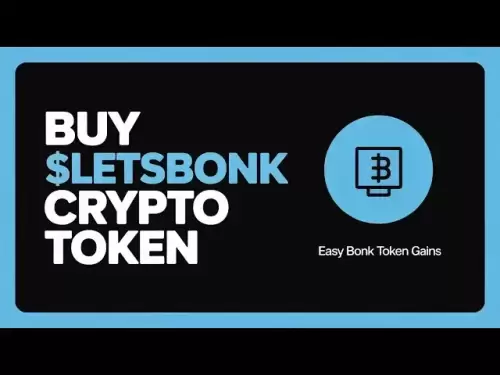-
 Bitcoin
Bitcoin $118100
-0.44% -
 Ethereum
Ethereum $3585
5.43% -
 XRP
XRP $3.434
5.65% -
 Tether USDt
Tether USDt $1.000
0.02% -
 BNB
BNB $743.8
3.89% -
 Solana
Solana $178.7
3.84% -
 USDC
USDC $1.000
0.03% -
 Dogecoin
Dogecoin $0.2381
12.81% -
 TRON
TRON $0.3270
3.62% -
 Cardano
Cardano $0.8315
4.93% -
 Hyperliquid
Hyperliquid $44.51
-4.42% -
 Stellar
Stellar $0.4710
1.52% -
 Sui
Sui $3.896
-2.51% -
 Chainlink
Chainlink $18.09
6.98% -
 Hedera
Hedera $0.2681
9.31% -
 Bitcoin Cash
Bitcoin Cash $516.7
4.83% -
 Avalanche
Avalanche $23.95
6.96% -
 Shiba Inu
Shiba Inu $0.00001490
5.67% -
 UNUS SED LEO
UNUS SED LEO $8.966
0.80% -
 Toncoin
Toncoin $3.294
4.39% -
 Litecoin
Litecoin $105.4
4.69% -
 Polkadot
Polkadot $4.356
5.30% -
 Uniswap
Uniswap $10.29
17.25% -
 Monero
Monero $327.9
-3.04% -
 Bitget Token
Bitget Token $4.942
4.33% -
 Ethena USDe
Ethena USDe $1.001
0.08% -
 Pepe
Pepe $0.00001348
2.17% -
 Dai
Dai $1.000
0.02% -
 Aave
Aave $320.8
0.58% -
 Bittensor
Bittensor $411.8
-4.07%
Is KYC mandatory for Bitcoin futures trading?
"KYC is essential for Bitcoin futures trading on regulated exchanges to comply with AML laws, though some decentralized platforms allow anonymous trading at the cost of security and liquidity."
Jul 12, 2025 at 10:56 pm
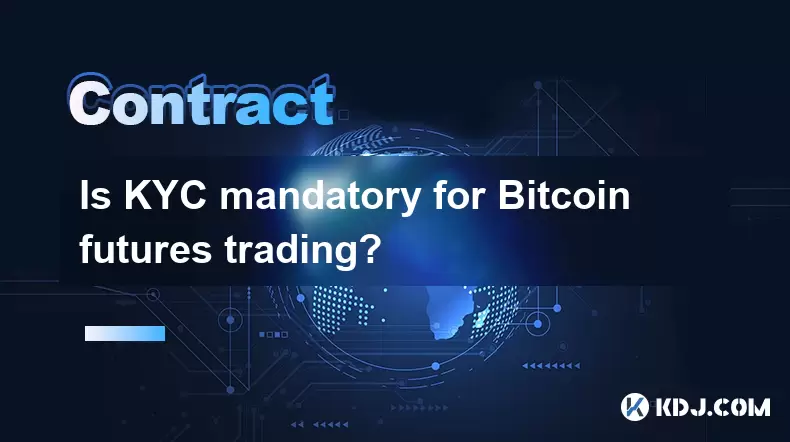
Understanding KYC in the Context of Bitcoin Futures Trading
Know Your Customer (KYC) is a regulatory requirement that financial institutions and service providers use to verify the identity of their clients. In the realm of cryptocurrency, especially for platforms offering Bitcoin futures trading, KYC procedures have become increasingly common. The necessity of KYC often depends on the jurisdiction of the exchange and the laws governing financial services in that region.
Many centralized exchanges that offer Bitcoin futures contracts require users to complete KYC verification before they can trade. This is primarily due to legal obligations imposed by financial regulators who aim to prevent money laundering, fraud, and other illicit activities. Exchanges operating under stricter regulations must comply with Anti-Money Laundering (AML) directives, which mandate KYC checks.
Why Some Platforms Enforce KYC for Futures Trading
Exchanges that enforce KYC requirements for Bitcoin futures typically do so to align with regional compliance standards. For example, platforms registered with the U.S. Commodity Futures Trading Commission (CFTC) or those operating within the European Union are bound by strict AML laws. These laws necessitate user identification and background checks before allowing access to leveraged products like futures contracts.
- Users may be asked to provide government-issued ID cards or passports.
- Proof of address documentation such as utility bills or bank statements might be required.
- Selfie verification is often used to confirm facial recognition matches the submitted ID.
These steps ensure that the platform remains compliant with international financial regulations while also protecting its users from potential identity theft or account breaches.
Platforms That Offer Bitcoin Futures Without KYC
Despite widespread adoption, not all platforms impose KYC verification for Bitcoin futures trading. Decentralized exchanges (DEXs) and certain offshore platforms allow users to engage in futures trading without submitting personal information. These platforms operate outside the purview of traditional financial regulation and prioritize user privacy.
However, using non-KYC platforms comes with risks:
- Limited customer support and dispute resolution mechanisms.
- Potential exposure to unregulated or fraudulent activities.
- Lower liquidity and higher slippage during volatile market conditions.
Users should carefully evaluate the trade-offs between privacy and security when choosing where to trade Bitcoin futures without KYC.
Legal Implications of Bypassing KYC Verification
While some traders prefer anonymity, bypassing KYC protocols can lead to legal complications depending on the trader’s location. In jurisdictions where crypto derivatives are regulated, engaging in futures trading without proper verification could violate local laws.
- Traders in countries like Japan and South Korea face stringent crypto regulations.
- Institutional investors often require KYC-compliant environments for legal accountability.
- Law enforcement agencies may investigate large anonymous trades linked to illegal activity.
Understanding the legal landscape is crucial before deciding whether to proceed with KYC-free trading options.
Steps to Complete KYC for Bitcoin Futures Trading
For those opting to trade on regulated platforms, completing KYC verification involves several key steps:
- Register an account on a compliant exchange offering Bitcoin futures.
- Navigate to the KYC verification section in the user dashboard.
- Upload a clear scan or photo of your official ID document.
- Submit proof of residence if prompted by the system.
- Wait for the platform to review and approve the documents, which can take from minutes to several days.
- Optionally, complete two-factor authentication (2FA) setup for added account security.
Each step ensures that the exchange meets regulatory standards while also enhancing user trust and platform integrity.
Frequently Asked Questions
Q: Can I trade Bitcoin futures anonymously?
A: Yes, but only on specific decentralized or offshore platforms that do not enforce KYC policies. However, these platforms may lack robust security features and regulatory oversight.
Q: Does Binance require KYC for Bitcoin futures?
A: Binance requires KYC verification for users accessing advanced features, including futures trading with higher limits. Basic futures trading might be available without KYC, but restrictions apply.
Q: What happens if I don’t complete KYC on a regulated exchange?
A: On regulated exchanges, failure to complete KYC verification may result in limited access to trading pairs, lower withdrawal limits, or inability to trade futures altogether.
Q: Is it safe to submit personal documents for KYC?
A: Reputable exchanges use encrypted systems to store and process KYC data securely. Always verify that the platform has strong privacy policies and a history of responsible data handling before submitting sensitive information.
Disclaimer:info@kdj.com
The information provided is not trading advice. kdj.com does not assume any responsibility for any investments made based on the information provided in this article. Cryptocurrencies are highly volatile and it is highly recommended that you invest with caution after thorough research!
If you believe that the content used on this website infringes your copyright, please contact us immediately (info@kdj.com) and we will delete it promptly.
- BlockDAG, Jupiter, Aptos: Decoding the Hottest Crypto Plays
- 2025-07-18 23:10:13
- XRP, Bitcoin, and Price Predictions: Decoding the Crypto Crystal Ball
- 2025-07-18 23:10:13
- GENIUS Act Sparks $4 Trillion Crypto Market Surge: What's Next?
- 2025-07-18 23:50:13
- PM Modi, Rajendra Chola, and a Coin Release: A Historical Confluence
- 2025-07-18 23:50:13
- MBG Token's Gate.io Listing: A New Era for MultiBank Group
- 2025-07-18 23:55:14
- Dogecoin, Retail Payments, and Price Surges: What's the Hype?
- 2025-07-18 23:55:14
Related knowledge

Example of a Bitcoin futures trade
Jul 19,2025 at 12:43am
Understanding Bitcoin Futures TradingBitcoin futures trading is a financial instrument that allows investors to speculate on the future price of Bitco...
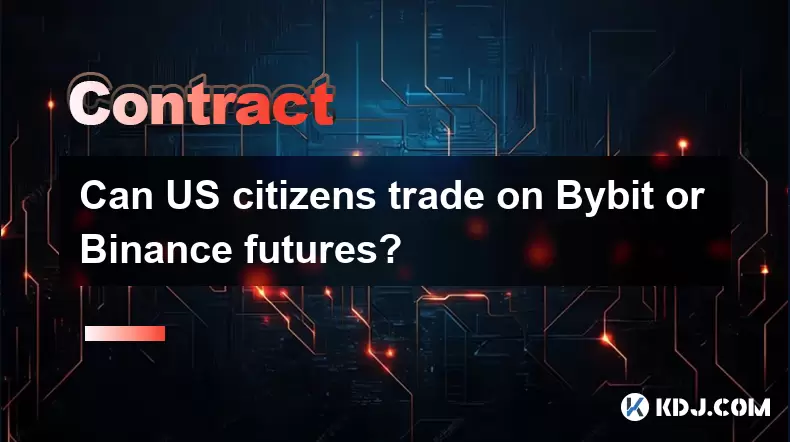
Can US citizens trade on Bybit or Binance futures?
Jul 18,2025 at 10:14pm
Understanding the Legal Status of US Citizens on Global Crypto ExchangesThe question of whether US citizens can trade on Bybit or Binance futures is o...
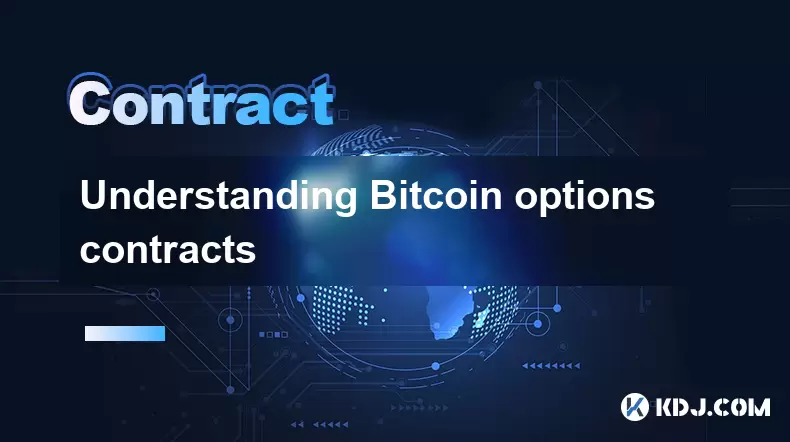
Understanding Bitcoin options contracts
Jul 18,2025 at 10:56pm
What Are Bitcoin Options Contracts?Bitcoin options contracts are financial derivatives that allow traders to speculate on the future price of Bitcoin ...

What is a stablecoin-margined contract vs a coin-margined contract?
Jul 15,2025 at 06:36pm
Understanding the Difference Between Stablecoin-Margined Contracts and Coin-Margined ContractsIn the world of cryptocurrency derivatives, margin plays...
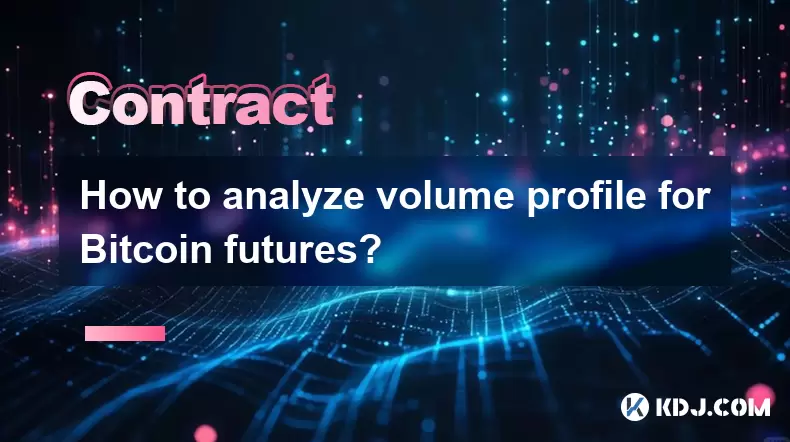
How to analyze volume profile for Bitcoin futures?
Jul 17,2025 at 01:21am
Understanding Volume Profile in Bitcoin Futures TradingVolume profile is a crucial analytical tool used by traders to assess the distribution of tradi...
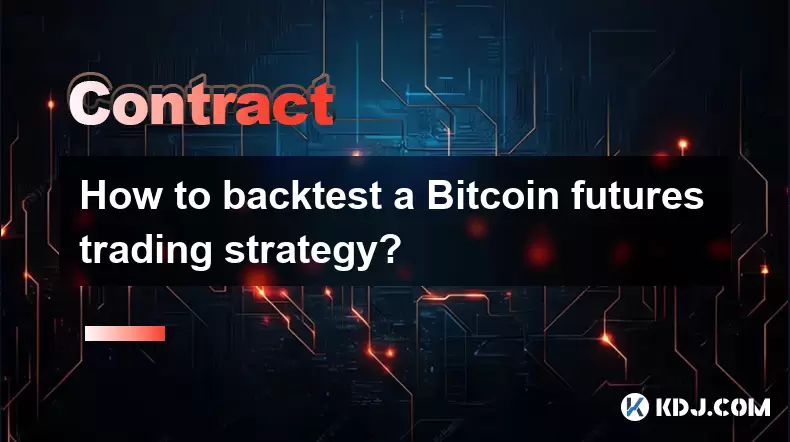
How to backtest a Bitcoin futures trading strategy?
Jul 15,2025 at 11:35am
Understanding Bitcoin Futures TradingBitcoin futures trading involves contracts to buy or sell Bitcoin at a predetermined price and date in the future...

Example of a Bitcoin futures trade
Jul 19,2025 at 12:43am
Understanding Bitcoin Futures TradingBitcoin futures trading is a financial instrument that allows investors to speculate on the future price of Bitco...

Can US citizens trade on Bybit or Binance futures?
Jul 18,2025 at 10:14pm
Understanding the Legal Status of US Citizens on Global Crypto ExchangesThe question of whether US citizens can trade on Bybit or Binance futures is o...

Understanding Bitcoin options contracts
Jul 18,2025 at 10:56pm
What Are Bitcoin Options Contracts?Bitcoin options contracts are financial derivatives that allow traders to speculate on the future price of Bitcoin ...

What is a stablecoin-margined contract vs a coin-margined contract?
Jul 15,2025 at 06:36pm
Understanding the Difference Between Stablecoin-Margined Contracts and Coin-Margined ContractsIn the world of cryptocurrency derivatives, margin plays...

How to analyze volume profile for Bitcoin futures?
Jul 17,2025 at 01:21am
Understanding Volume Profile in Bitcoin Futures TradingVolume profile is a crucial analytical tool used by traders to assess the distribution of tradi...

How to backtest a Bitcoin futures trading strategy?
Jul 15,2025 at 11:35am
Understanding Bitcoin Futures TradingBitcoin futures trading involves contracts to buy or sell Bitcoin at a predetermined price and date in the future...
See all articles
























